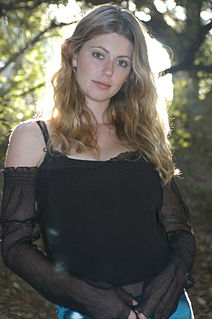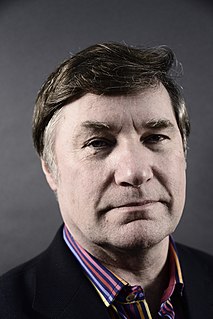A Quote by Kate Morton
Wars make history seem deceptively simple. They provide clear turning points, easy distinctions.: before and after, winner and loser, right and wrong. True history, the past, is not like that. It isn't flat or linear. It has no outline. It is slippery, like liquid; infinite and unknowable, like space. And it is changeable: just when you think you see a pattern, perspective shifts, an alternate version is proffered, a long-forgotten memory resurfaces.
Quote Topics
After
Alternate
Before
Before And After
Changeable
Clear
Distinctions
Easy
Flat
Forgotten
History
Infinite
Just
Like
Linear
Liquid
Long
Loser
Make
Memory
Outline
Past
Pattern
Perspective
Points
Provide
Right
Right And Wrong
See
Seem
Shifts
Simple
Slippery
Space
Think
True
Turning
Turning Point
Turning Points
Unknowable
Version
Wars
Winner
Winner And Loser
Wrong
Related Quotes
What is memory but the repository of things doomed to be forgotten, so you must have History. You must have labor to invent History. Being faithful to all that happens to you of significance, recording days, dates, events, names, sights not relying merely upon memory which fades like a Polaroid print where you see the memory fading before your eyes like time itself retreating.
After school, I went to Damascus to study law and history, which I didn't really like. I didn't like history, in particular. In Syria, the regime was trying to present to us a distorted version of the past. Assad was shown as the father of history. So I decided to shift to film, which was something I had always loved as a teenager.
If one tries to think about history, it seems to me - it's like looking at a range of mountains. And the first time you see them, they look one way. But then time changes, the pattern of light shifts. Maybe you've moved slightly, your perspective has changed. The mountains are the same, but they look very different.
I felt like lying down by the side of the trail and remembering it all. The woods do that to you, they always look familiar, long lost, like the face of a long-dead relative, like an old dream, like a piece of forgotten song drifting across the water, most of all like golden eternities of past childhood or past manhood and all the living and the dying and the heartbreak that went on a million years ago and the clouds as they pass overhead seem to testify (by their own lonesome familiarity) to this feeling.
My take is that there's two ways to approach history. You sit in your armchair and you watch it on the news and you return to your PlayStation. Or you get out in the streets and you make it. Like, when those Supreme Court justices, you know, legalize desegregation, it wasn't due to their infinite wisdom. It's because people whose names you do not read about in history books, people whose faces you will never see, were the ones who struggled and sacrificed, sometimes gave their lives, to make this country a more equal one. When, it's like those people don't make history, it's us.
There's always a pattern in order to make a thing, but the starting point must be something I've never seen before. It's not two-dimensional, but it's like a sample. I work with patterns like a sculptor. I try to get [the team] not to work on a body, [but] to work on a free space, on a table. The work is basically on flat surfaces.
The key strengths of civilizations are also their central weaknesses. You can see that from the fact that the golden ages of civilizations are very often right before the collapse. The Renaissance in Italy was very much like the Classic Maya. The apogee was the collapse. The Golden Age of Greece was the same thing. We see this pattern repeated continuously, and it is one that should make us nervous. I just heard Bill Gates say that we are living in the greatest time in history. Now you can understand why Bill Gates would think that, but even if he is right, that is an ominous thing to say.



































